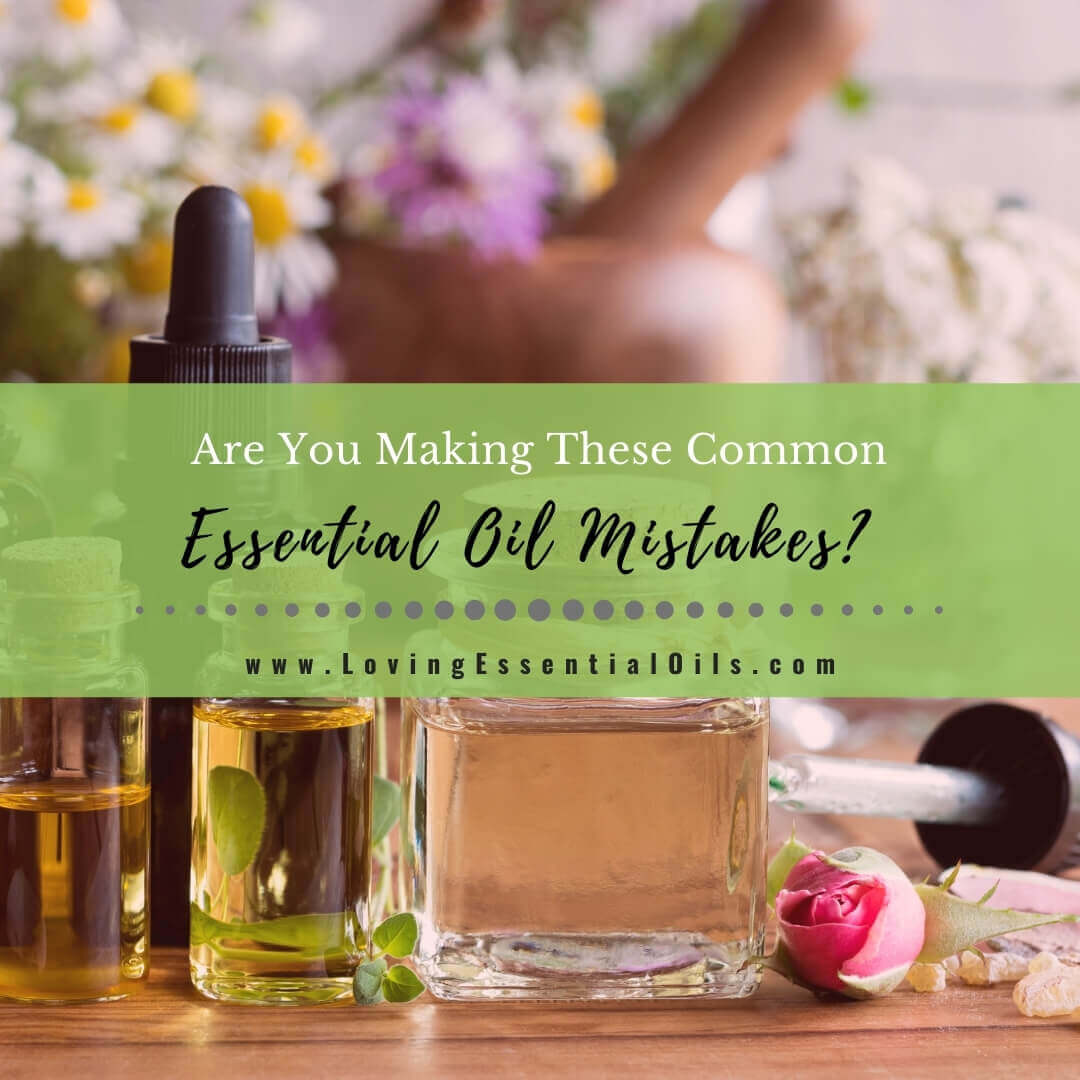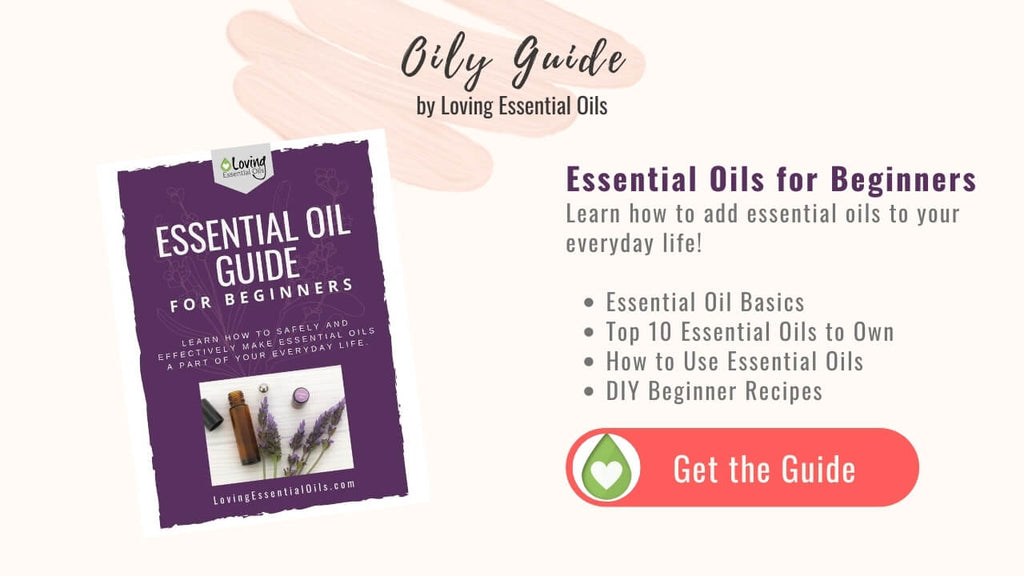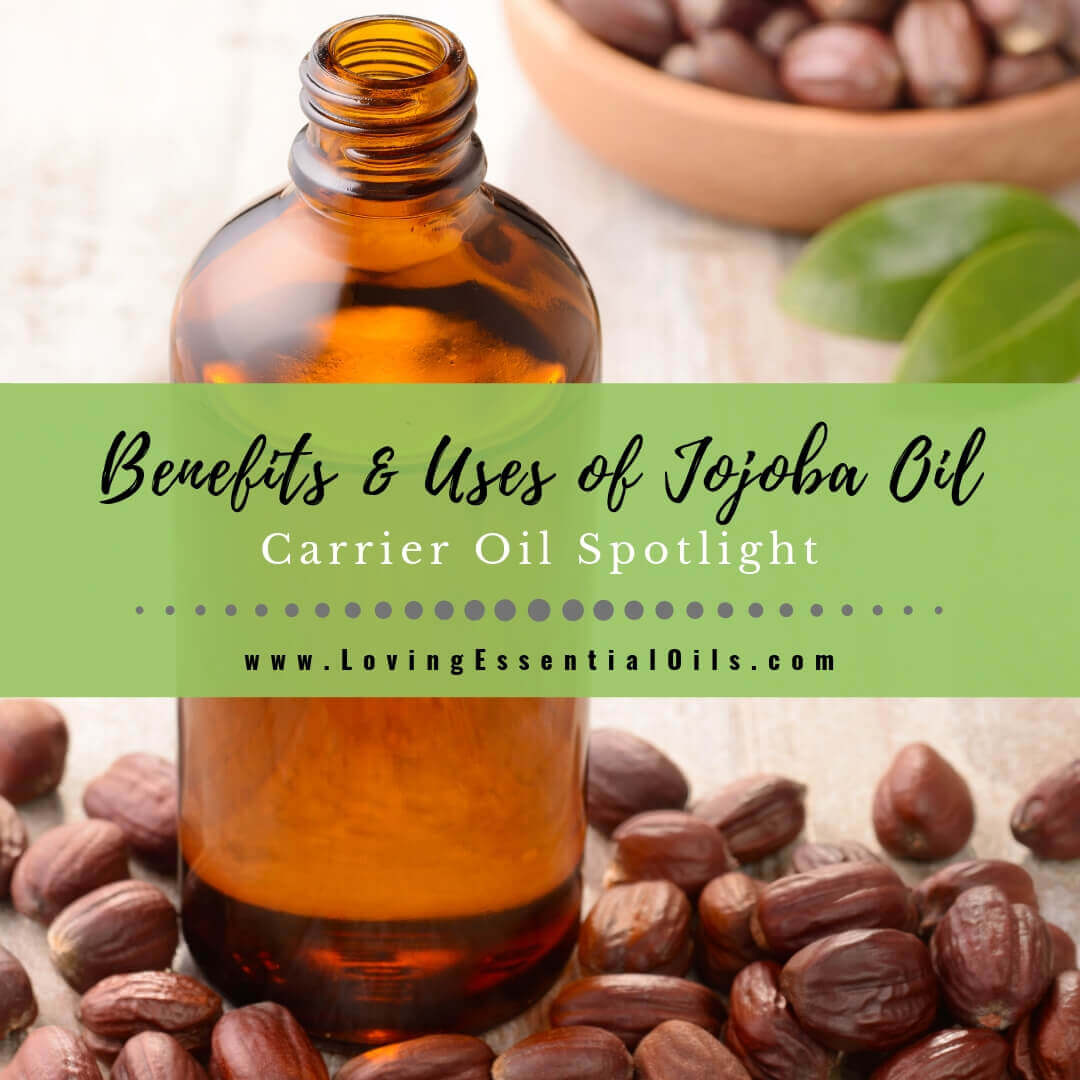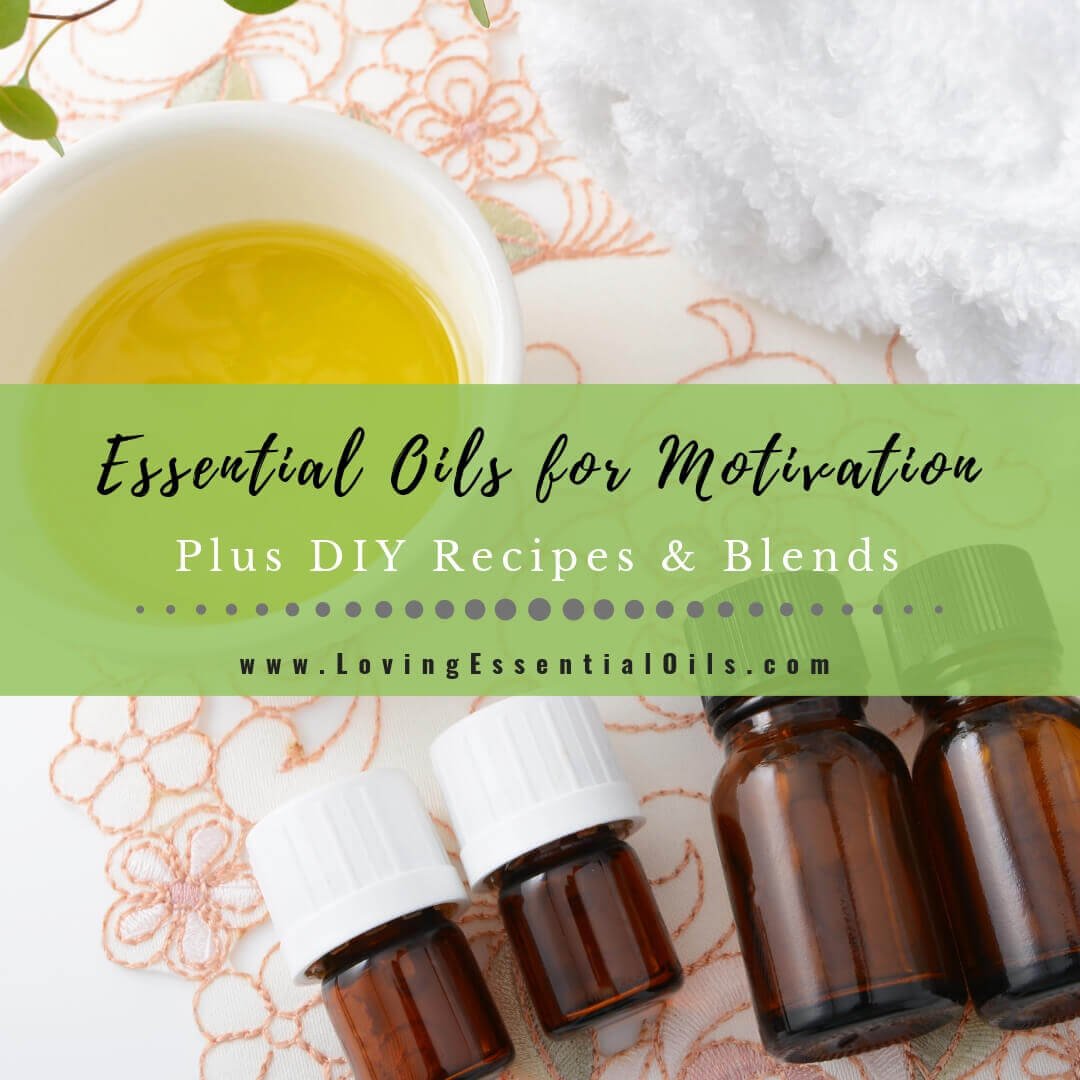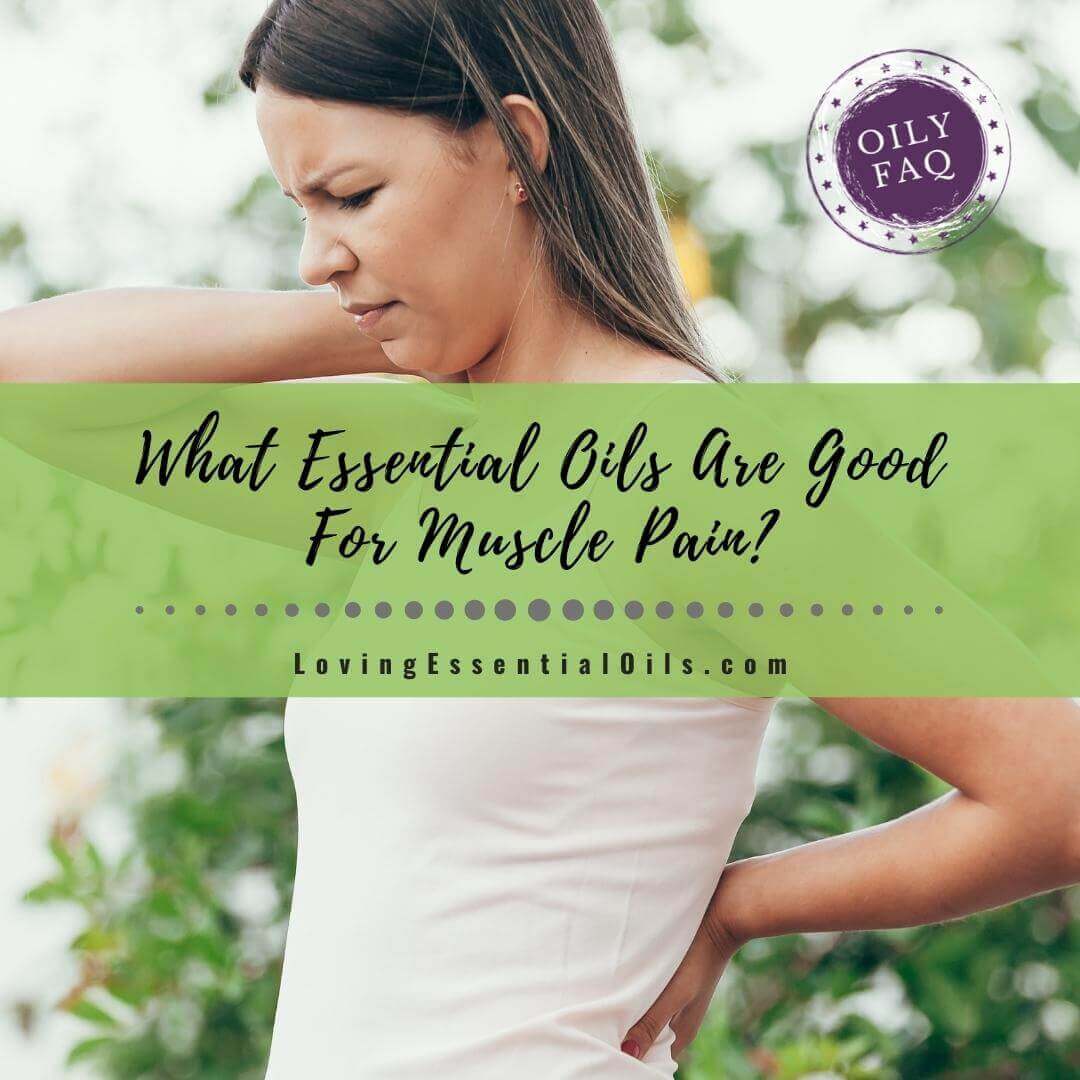Table of Contents
- 7 Common Essential Oil Mistakes to Avoid
- Essential Oil Mistake #1: You think that essential oils can only do good
- Essential Oil Mistake #2: You don’t use a carrier oil
- Essential Oil Mistake #3: Running your diffuser 24/7
- Essential Oil Mistake #4: Buying low-quality oils
- Essential Oil Mistake #5: Lack of knowledge about essential oils
- Essential Oil Mistake #6: Not using essential oils to their full potential
- Essential Oil Mistake #7: Throwing away your empty essential oil bottles
- Are Essential Oils Dangerous?
- Frequently Asked Questions About Common Mistakes with Essential Oils
- What citrus oils cause photosensitivity?
- What are some other tips for using essential oils safely and effectively?
- How can I tell if an essential oil has gone bad?
- What should I know about misidentifying essential oils?
- What is the best way to store essential oils?
- Final Thoughts on Essential Oil Mistakes
- FAQs
When learning to use aromatherapy oils, it’s important to know the common essential oil mistakes to avoid. When used properly, essential oils have endless opportunities to bring wellness and happiness into our lives.
While essential oils are natural and can be perfectly safe for almost everyone to use, it’s important to remember that they are an extremely concentrated substance.
They have the ability to work their way into our everyday routines and bring something truly special and unique to everyone.
From making your home – or yourself – smell divine to daily skincare and relaxation, there’s almost nothing you can’t do with essential oils.
Almost nothing.
7 Common Essential Oil Mistakes to Avoid
Mistakes happen—that's just a fact of life. While we know that it is important to make mistakes in order to grow, sometimes the wrong action or thought can be costly or even dangerous!
Essential oils are very potent and can have harmful effects when misused. Let's explore the most common essential oil mistakes and how to avoid them in your home.
Here are 7 mistakes to avoid when using essential oils.
Essential Oil Mistake #1: You think that essential oils can only do good
I don’t want you to panic, thinking, “Are essential oils dangerous?” because they CAN bring healing to our lives, but because they are so strong, you must be careful.
There is always the chance of an allergic reaction when you try anything new, especially essential oils because they are so concentrated. Every drop packs a punch!
- Some oils might react adversely with certain medications, so it’s never a bad idea to discuss this with your doctor.
- Many essential oils can help with symptoms of pregnancies but they’re not all safe for mama and baby. Some oils might cause false or early labor so always check with your doctor about this, too.
Also, use caution and avoid using too much essential oil. Too much can lead to skin irritation or respiratory issues for some people if they are sensitive to the oils being used. Additionally, using too much can cause an overpowering scent.
Essential Oil Mistake #2: You don’t use a carrier oil
Not using a carrier oil to dilute your essential oil is one of the biggest essential oil mistakes made. If you will be using essential oils topically (on the skin), then best practice is to dilute them in a carrier oil before applying to the skin.
There are tons of carrier oils on the market that have different uses and benefits, all of them make essential oils safer to use. Here are just a few
- Jojoba Oil
- Fractionated Coconut Oil
- Sweet Almond Oil
- Grapeseed Oil
- Rosehip Oil
As a standard, you’ll want to dilute your oil to about 2 percent or 12 drops of essential oil per ounce of carrier oil.
Some might say that essential oils that are diluted enough are safe for ingestion—as tea, food, or capsule supplements. There is much debate on this topic.
Essential oils have the possibility to seriously damage your body because they are so strong. To be on the safe side, it isn’t recommended to ingest essential oils, especially for beginner users.
Essential Oil Mistake #3: Running your diffuser 24/7
While we all love to diffuse oils to purify our homes and make them smell delicious, breathing essential oils without proper ventilation isn’t a good idea. To avoid this essential oil mistake, seek out a diffuser with a timer you can set to turn off after a certain amount of time—between 30 minutes and an hour or so. It’s especially important to think of children and pets when diffusing oils, too!
You should do your research into what is safe for children and pets to breathe and ensure the room has proper ventilation so no one gets stifled.
Essential Oil Mistake #4: Buying low-quality oils
The first thing to make sure of when buying essential oils is that they aren’t filled with fillers or additives. You only want the good stuff made of 100% pure essential oil.
Next, it’s always better to buy organic when shopping around, and the option is there. They do tend to cost a little extra, and you may be unable to find organic essential oils. If it is a quality company you are purchasing from, then it isn't as concerning.
We are frequently asked what essential oil brand we like. Here are some of our favorite essential oil brands:
If you aren’t buying your oils online, a health food store, co-op, or local aromatherapist is a great place to start. Most stores will have sample bottles to test the oil’s scent and reaction with your body.
Essential Oil Mistake #5: Lack of knowledge about essential oils
Don’t make the essential oil mistake of not knowing the essential oil you are using. If you have an essential oil that you are not familiar with, you should determine if it is safe for you to use.
Some essential oils should not be used on children, pregnant women, or breastfeeding mothers. Certain essential oils could make certain health conditions worse, like seizures or asthma.
Skin Patch Test
If you are using a new oil, you may want to do a skin patch test before applying all over your body, especially if you have sensitive skin.You will also want to know what to do have a skin reactions to essential oils that have been applied.
It was shared in mistake #2 that best practice is to dilute your essential oils before applying them to the skin. This really is the best way to avoid skin irritations from oils.
If you have a reaction to an oil that has been applied to skin you will need to apply plain carrier oil to the area (like jojoba oil or fractionated coconut oil). When mixing, the carrier oil will dilute the essential oil making it less potent. After you’ve got the essential oil diluted, you can wash the area with a gentle soap and water and then you’ll be good to go.
Essential Oils for Beginners Guide
Learn all about Essential Oils in this Beginner's Guide and how to use them safely and effectively. Written by Jennifer Lane, Loving Essential Oils Owner & Certified Aromatherapist:
Essential Oil Mistake #6: Not using essential oils to their full potential
You can really have fun with essential oils! Don’t forget that they can be used for much more than just a quick application on the wrist or diffused in your home. You can use oils to make cleaning supplies, spray perfumes, moisturizers, and even dry shampoo!
There are tons of fun ideas for essential oil projects and DIY recipes out there. If you get creative enough, you might even be able to swap out all of your current home, bath, and body products for homemade ones made with natural essential oils that help cleanse and smell amazing.
Essential Oil Mistake #7: Throwing away your empty essential oil bottles
Got an empty oil bottle? Don't throw it away, instead reuse or repurpose it! The small colored glass bottles of essential oils can easily be reused in DIY recipes and projects. You can even make them into roller bottles.
In addition, empty essential oil bottles always have a little oil residue left. Use this by either keeping the residue in or getting it out.
An easy way to get the last few drops of oil out is to add some water to the bottle, shake it up, and then add the mixture of water and oil residue to your aromatherapy diffuser. If you need to add oil or water to your diffuser, do so. Enjoy the last few drops as they waft through your home.
Likewise, you can leave the oil residue in the bottle and add carrier oil to make a mini bottle of massage oil; add additional drops of essential oil if needed.
Are Essential Oils Dangerous?
I hope this has answered your question, “Are essential oils dangerous?” The hard and fast answer is “no,” but as you can see, there are ways to misuse essential oils. If you’ve made one or two of these essential oil mistakes, I hope that doesn’t deter you from trying again and using them.
As long as you do the proper research and use essential oils safely, the benefits will send you soaring—and everyone else will love how delicious you smell!
Frequently Asked Questions About Common Mistakes with Essential Oils
Essential oil mistakes can range from improper dilution to incorrect application, potentially impacting the safety and effectiveness of your aromatherapy experience. Here are some FAQs.
What citrus oils cause photosensitivity?
Some citrus oils and other essential oils can cause photosensitivity when applied to the skin and then exposed to direct sunlight or UV rays. Photosensitivity occurs when certain essential oils interact with the sun's UV rays, causing an allergic reaction such as redness, swelling, and even burns.
Lime, bergamot, and lemon essential oils are common citrus oils that can cause photosensitivity. However, it is important to note that not all citrus oils cause this reaction.
What are some other tips for using essential oils safely and effectively?
Here are some tips and tricks for using essential oils safely:
- Always dilute essential oils with a carrier oil such as jojoba, almond, or coconut oil before applying to the skin.
- Avoid contact with eyes, ears, and other sensitive areas when using essential oils.
- Do a patch test before topically using essential oils on the skin.
- Instead of applying them directly to the skin, use a diffuser to disperse essential oils into the air.
- Keep essential oils away from pets and children.
- Store essential oils in a cool, dark place.
- Use only high-quality, pure essential oils.
- Essential oils should be stored away from strong odors, as the oil can absorb these smells.
- If you are pregnant, breastfeeding, epileptic, or under a doctor’s care, consult your physician.
Get more information on essential oil safety issues.
How can I tell if an essential oil has gone bad?
The main signs of an essential oil going bad are color, smell, and/or texture changes. If the color has turned darker, the smell has changed, or the texture is thicker, the oil has likely gone bad.
Additionally, if the oil has separated into layers, discolored, or started to smell sour, it has likely gone bad.
What should I know about misidentifying essential oils?
Essential oils are highly concentrated plant extracts used for various therapeutic and medicinal purposes. Unfortunately, some essential oils are also sold as synthetic or adulterated blends, which can be dangerous if misused.
Misidentifying essential oils can result in serious skin reactions and other adverse health effects. It is important to always purchase essential oils from reputable sources and verify each oil's purity and quality before using it.
Essential oil users should know the difference between fragrance oils and essential oils. They should also be educated on how to properly use each oil, including diluting them according to the recommended safety guidelines.
By taking these precautions, users of essential oils can experience the full therapeutic benefits without risking their health.
What is the best way to store essential oils?
When storing essential oils, two main things to consider are temperature and light. Essential oils should be stored in a cool, dark place away from direct sunlight.
The best way to store essential oils is in dark glass bottles with tight-fitting lids. This will help protect the oils from light, heat, and moisture.
Additionally, essential oils should be stored away from any heat source, such as a stove or radiator, as this can cause the oil to degrade faster.
Newbie to Oils? Read More: Essential Oils for Beginners
Final Thoughts on Essential Oil Mistakes
Avoiding common essential oil mistakes, such as using oils undiluted or ingesting them without proper guidance, is crucial for maximizing the therapeutic benefits while protecting your skin and overall well-being.
By understanding and avoiding these essential oil mistakes, you'll not only enhance your enjoyment of these potent plant extracts but also prevent potential adverse reactions that could diminish their positive effects.
FAQs
What are common mistakes people make when using essential oils?
Common mistakes when using essential oils include applying them directly to the skin without dilution and using them excessively. It's important to always mix essential oils with a carrier oil to prevent skin irritation and to follow recommended dosages.
How should essential oils be stored to prevent mistakes?
Essential oils should be stored in a cool, dark place in airtight bottles to maintain their potency and prevent degradation. Keeping them out of direct sunlight and away from extreme temperatures will help preserve their therapeutic qualities.
Are there essential oils that should never be used undiluted?
Essential oils, such as oregano, thyme, cassia, and cinnamon, should never be undiluted due to their potency and potential to cause skin irritation. Always dilute these oils with a carrier oil before applying them to the skin.
Can using essential oils incorrectly be harmful?
Yes, incorrect use of essential oils can be harmful, leading to allergic reactions or skin sensitization. Ingesting essential oils without proper guidance can also cause adverse effects, so using them safely is crucial.
Can essential oils expire or go bad?
Essential oils can expire and lose effectiveness over time, especially if not stored properly. A common mistake is using oils past their expiration date, resulting in diminished therapeutic benefits and potential skin irritation.

